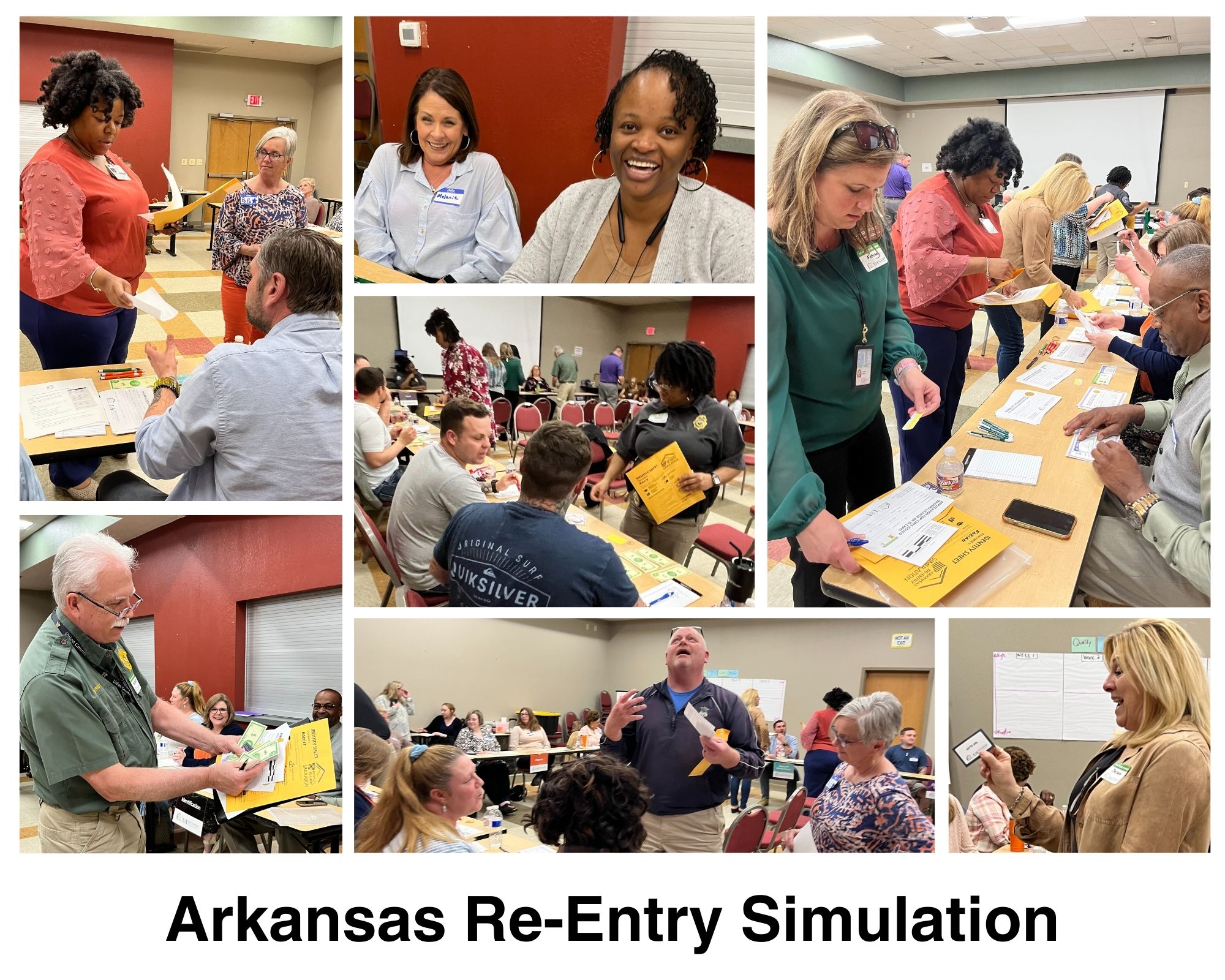Posts
Contact
Kristin Higgins
Public Policy Center
Phone: 501-671-2160
Email: khiggins@uada.edu
University of Arkansas System Division of Agriculture
Cooperative Extension Service
2301 S. University Avenue
Little Rock, AR 72204
Public Policy Center Launches Arkansas Re-Entry Simulation During Second Chance Month
 A new simulation offered by the Public Policy Center highlights the hurdles people
recently released from prison encounter when trying to rejoin a community and provides
local leaders a tool to use when discussing the complex issues surrounding re-entry.
A new simulation offered by the Public Policy Center highlights the hurdles people
recently released from prison encounter when trying to rejoin a community and provides
local leaders a tool to use when discussing the complex issues surrounding re-entry.
Nearly everyone who goes to prison eventually leaves prison. Pair that reality with county governments in Arkansas spending more than one-third of their budgets on public safety, it becomes clear prison re-entry affects many Arkansans.
“Walking in the shoes of someone with a felony record for four “15-minute weeks” is one way to raise awareness about the personal impact re-entry has as well as the larger community impact,” said Kristin Higgins, a program associate at the University of Arkansas System Division of Agriculture's Public Policy Center.
Adapted from a simulation created by the West Virginia Department of Justice, the two-hour program involves participants assuming the identity of a person reporting to probation, trying to find work, paying off debts and avoiding going back to prison.
“Every circumstance that was presented are actual barriers I see daily,” one participant wrote after attending the Public Policy Center’s first Arkansas Re-Entry Simulation in El Dorado in April.
The SHARE Foundation in El Dorado hosted the Public Policy Center’s simulation during its Re-Entry Week events. More than 40 people participated in the simulation, including probation officers, the county sheriff, nonprofit leaders, and people who have spent time in the prison system..
Nationally, April is Second Chance Month, where the Department of Justice recognizes “the importance of helping individuals, communities, and agencies across the country appreciate their role in supporting the safe and successful reentry of millions of people returning from incarceration each year.”
During the simulation, Higgins mentioned that the entire population of El Dorado could fit in the state's prison system. She also asked participants how their experiences compared to their own lives, and they define "quality of life."
"It was a great experience where those working in re-entry and those living in re-entry were on opposite sides of the table. The sheriff, parole officers, HR departments, landlords and others just thought they knew how hard it was to re-enter society. They were wrong," said Debbie Watts, vice president of community impact at the SHARE Foundation, which hosted the program on April 26. "The simulation gave participants more understanding and sympathy for those in re-entry after gaining a better perspective on what they go through on a daily basis. The obstacles they encounter, how fragmented service providers are from one to another and the lack of knowledge even the service providers have of each other was eye opening."
Many of the participants were already familiar with the concept of re-entry. Asked what they learned from the simulation, responses included:
That re-entry could be tough and unexpected due to life's curve balls but it is possible with support and perseverance.
That buying basic life items - food, clothes (for interviews, etc.) becomes borderline impossible.
That others did not realize how hard it was for people trying to get their lives together.
How fragmented service providers are from each other.
How hard it is to start with nothing
Frustration with the process and why people re-offend
Watts said providers in attendance plan to be more aware of other area resources, how to connect people to those resources and bridge gaps in order to break down barriers.
"Human Resource departments indicate the need to review hiring policies and lighten up on hiring restrictions where allowed.," Watts said. "The event was well received, enjoyed by both sides of the tables and will prompt further action in Union County."
About the Re-Entry Simulation
Extension county agents in more than 25 counties work with local courts and organizations to provide re-entry education, ranging from healthy eating to stress management. The Public Policy Center staff decided to offer the simulation as another opportunity for elected officials, employers, landlords, and community groups to learn about what re-entry looks like. The program can also be used to help people about to leave prison to discuss their futures.
Email us to request more information about bringing this simulation to your community, or visit our Rural Criminal Justice website for additional details.